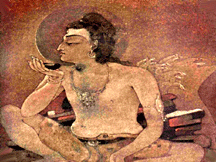Apr 14, 2025
Apr 14, 2025
Vish De Vishwas Na De
 Amma, my Grandma, used to speak in parables and proverbs. One of her favorites was "Vish De Vishwas Na De" meaning, "It is better to poison than to give a false promise".
Amma, my Grandma, used to speak in parables and proverbs. One of her favorites was "Vish De Vishwas Na De" meaning, "It is better to poison than to give a false promise".
So often it happens that an acquaintance of ours approaches us seeking help. The help could be in cash or kind. More often than likely, we find ourselves unable to say "No" and instead try to cover up our inability to render help by giving an alibi, "Oh, I wish you had told me earlier" or "Hey, get back to me in a couple of days and I will try..."
And, a few days later, when the same person approaches us again, we tend to do the same thing. Giving false hope. This goes on until the day when we find ourselves avoiding the person on the pretense or the other.
Why do we do this?
We believe that by saying "No" straight away, we might hurt the other.
We "know" that we do not want to help or are incapable of helping, but to keep our ego bloated and not to suffer from the guilt of being unhelpful, we refuse to say a simple "No".
We get a sadist kick to see the "other" in a spot and enjoy the sense of being "powerful". Unconsciously, perhaps, we like to see the "other" beseeching over and over - it works as a stimulant in upholding our conceited self-importance.
Does this really help?
No, not really. In truth, we hurt the other more by giving a false hope as by doing so we reduce the possibilities of different options that he/she may have otherwise. On the other hand if we blatantly said "No", it may momentarily hurt the other but we would not be depriving the other to either seek help elsewhere or find other ways and means to resolve the problem. More importantly, in the latter case, we will be honest with our own self and also with the other.
Read Also: May You Nurse Your Own Children
30-Apr-2001
More by : Rajender Krishan